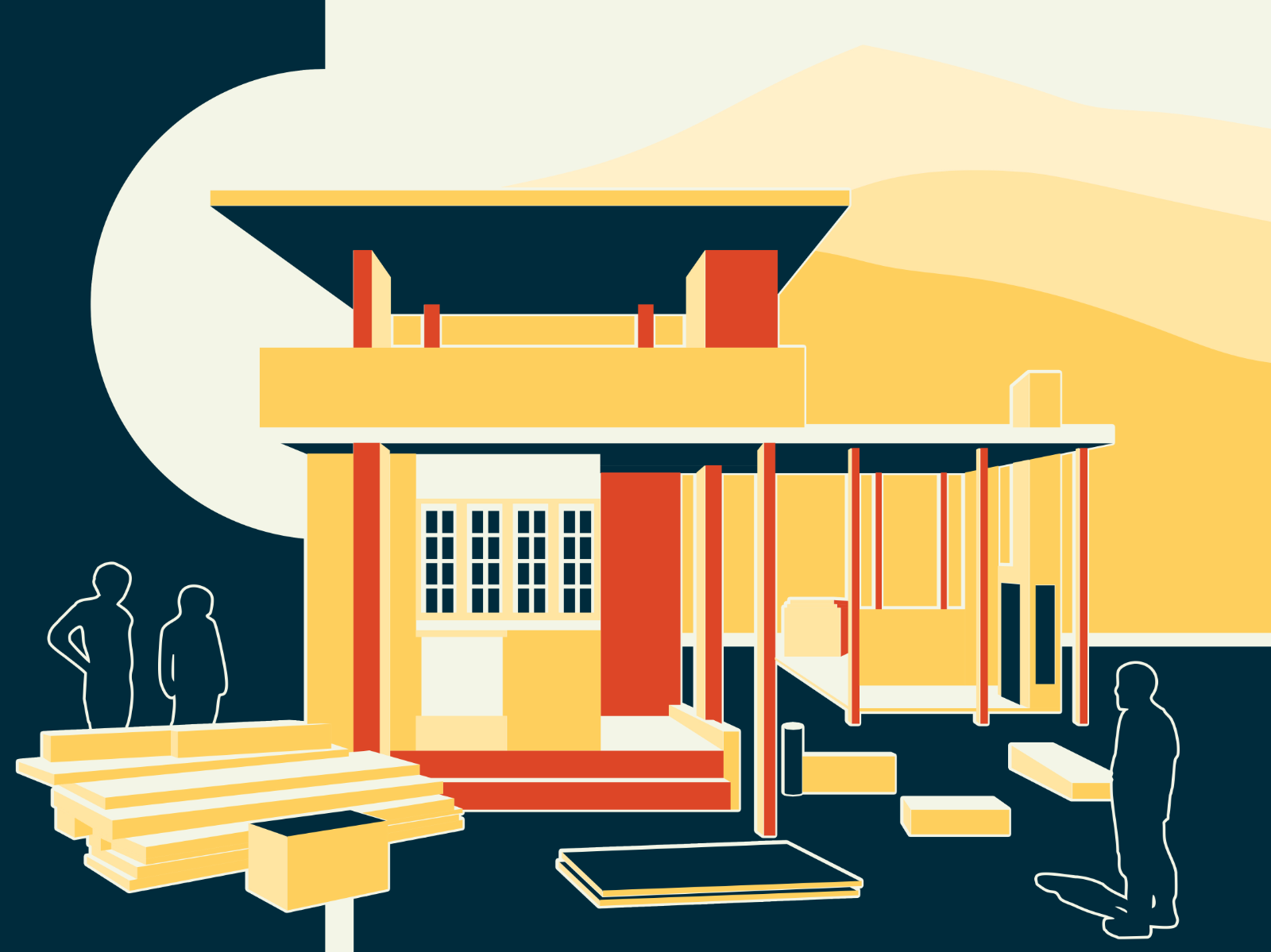Interreg Alpine Space - Building circular in the alpine space
The Interreg project BAUHALPS promotes sustainable building in the Alpine region through Innovation, Culture and NEB values to develop climate-friendly standards for future construction.
Project background
According to the European Commission, the built environment is responsible for at least 40% of anthropogenic greenhouse gas emissions. For the Alps, the key challenge is to make effective use of local resources while ensuring the consistent application of EU regulations and promoting the adoption of common standards across the construction value chain.
Project objective
The BAUHALPS project aims to develop a circular construction model based on the principles of the New European Bauhaus in order to support the green transformation of the construction sector. The circularity of buildings is evaluated and measures for sustainable construction are developed. The project also contributes to the implementation of European strategies such as the EU Green Deal, the Territorial Agenda 2030, the New European Bauhaus and the EU Strategy for the Alpine Region (EUSALP).
Project procedure
The methodology of the BAUHALPS project combines scientific analysis, practical testing and participatory processes to promote sustainable building practices in the Alpine region.
First, local building traditions and modern techniques are analyzed and documented in an online repository. Local communities will be actively involved in the process in order to take regional challenges and needs into account. These findings will be incorporated into the development of a BAUHALPS model that integrates innovative, circular construction methods based on the New European Bauhaus (NEB).
In the next step, a toolkit with instruments for circular economy, aesthetics and community-oriented construction will be developed and tested in pilot projects. The results of the feasibility studies on various building types will be used to further develop and optimize the toolkit.
Finally, the toolkit will be validated and an action plan for the green transformation in the construction sector will be drawn up. Partnerships with construction networks and NEB initiatives will ensure its long-term use. The toolkit will be made available online to enable professionals and decision-makers to develop sustainable building concepts.
The project relies on international cooperation with partners from different regions to develop a common strategy for sustainable, circular construction. Particular attention is paid to the genius loci so that regional identities and special features are preserved.
Innovation
BAUHALPS combines the principles of the New European Bauhaus with the circular economy to promote sustainable construction in the Alpine region. The project develops a circular building model, evaluates the circularity of buildings and integrates regional building culture. Innovative strategies for climate-friendly, resource-conserving construction that takes into account technical as well as aesthetic and social aspects are created through transnational collaboration and open source tools.
The BAUHALPS – Building Circular in the Alpine Space project is co-financed under the Interreg Alpine Space Programme. The total project budget amounts to EUR 2,739,188.01, with the European Regional Development Fund (ERDF) contributing EUR 1,919,390.40, representing 70.07% of the total budget.
Project lead
Project staff
T +49 (0) 8031 / 805 - 2909 fabian.ferner[at]th-rosenheim.de
T +49 (0) 8031 / 805 - 2989 carolina.nicol[at]th-rosenheim.de
T +49 (0) 8031 / 805 - 2905 raphael.fritz[at]th-rosenheim.de
Project collaboration
T +49 (0) 8031 / 805 - 2940 maren.kohaus[at]th-rosenheim.de
ORCID iD: 0000-0002-4112-1402
Project duration
2024-09-01 - 2027-08-31Project partners

Project funding



